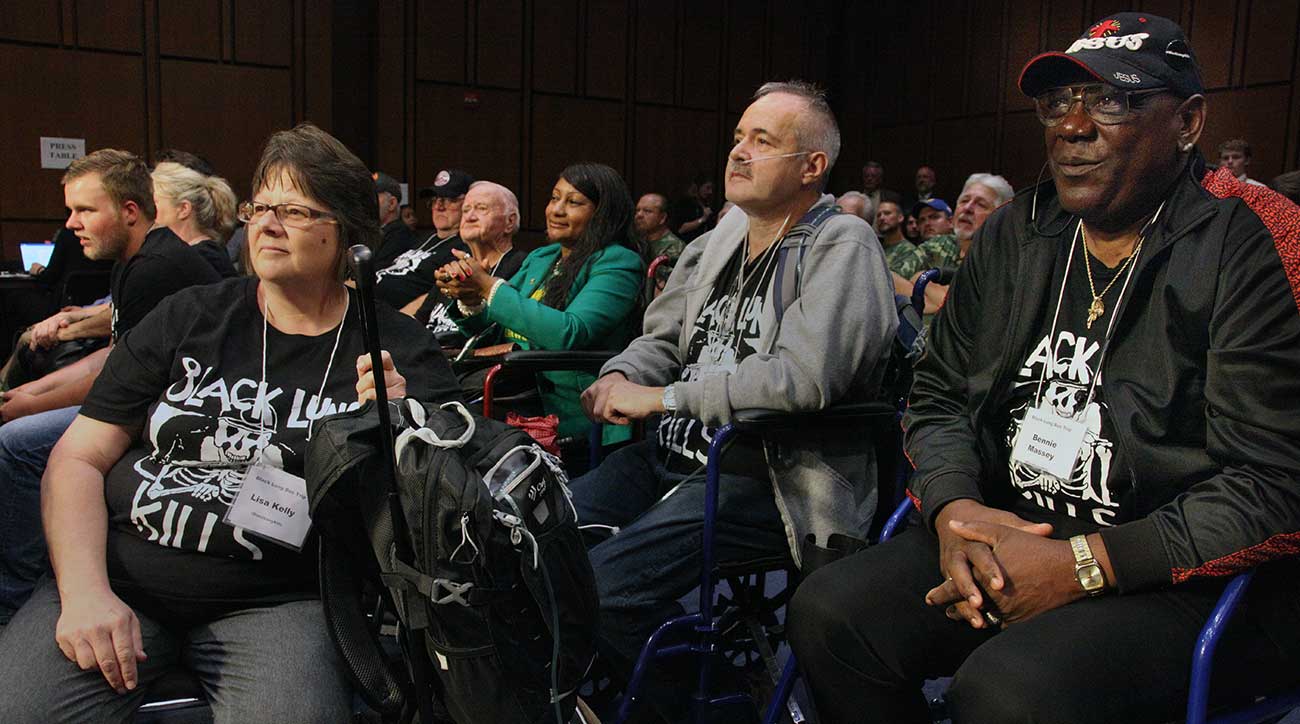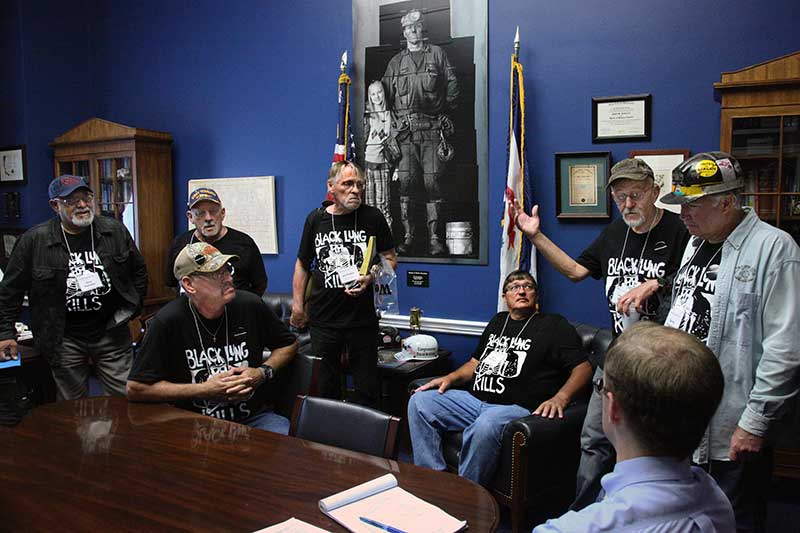Black Lung Disease

Mining coal and working at coal prep plants and coal-fired power plants is hard, dangerous work. Thanks to the sustained fight led by workers and labor unions, there are some safety measures in place — but much more is needed to stop preventable conditions like black lung disease.
Modern surge in black lung
Black lung disease occurs when mine workers inhale dust containing silica and other harmful substances while on the job. Over time, this exposure to dust damages their lungs and impairs their ability to breathe.
The disease was once on the decline, thanks to hard-fought worker safety measures won by the Black Lung Association, the United Mine Workers of America and their supporters, but black lung has been on the rise in recent years. It is now affecting younger miners than ever before.
According to the Centers for Disease Control and Prevention, as many as one in five coal miners in Central Appalachia are afflicted by black lung. It is incurable and deadly.
The need for stronger silica regulations
The current spike in black lung is in large part due to Appalachian miners encountering higher rates of silica dust than in previous generations. Regulations addressing exposure to coal dust were improved by a Mine Safety and Health Administration rule-making in 2014, but stronger regulations addressing silica exposure were badly needed.
In April 2024, MSHA finalized a new silica rule rule. The new rule cuts the amount of silica dust a miner can be exposed to during an eight-hour shift by half, from 100 micrograms per cubic meter to 50, granting miners the same silica exposure limit as workers in all other industries.
Miners and their advocates, while pleased with the stricter exposure standard, expressed concerns about enforcement measures in the rule — including the absence of mandatory fines for coal operators who violate exposure limits, the rule’s reliance on industry-conducted inspections and sampling, and allowing coal companies to require miners to work in areas where excessive silica levels are present so long as the company provides respirators, which miners have long criticized as impractical and ineffective.
The rule was supposed to go into effect in April 2025, but as of October 2025, the rule was under a court stay due to a lawsuit from the mining industry, with litigation continuing to block the life-saving protections. Rather than counter industry proposals to modify and stay the rule, the Trump administration is negotiating with them.
Ensuring coal companies keep paying the Black Lung Excise Tax
Under the Black Lung Benefits Act of 1972, miners with black lung are entitled to medical care and disability benefits, paid for by the miner’s employer. When coal companies go bankrupt, as so many have in recent years, these payments are picked up by the Black Lung Disability Trust Fund, administered by the Department of Labor.
This program is funded by a small tax on coal production, paid by coal companies, called the black lung excise tax (or the coal excise tax). Prior to the 2022 passage of the Inflation Reduction Act, which included a permanent of extension of the black lung excise tax, the fee needed to be extended by an act of Congress. At times legislators failed to act, starving the Black Lung Disability Trust Fund of a crucial source of revenue. Appalachian Voices and coalition of miners and their supporters successfully advocated for extension of the critical fee to stop the coal industry to dodge its obligation to take care of coal miners.
Coal miners have powered the country for generations, but now, deadly black lung disease is on the rise. Tell your lawmakers to support the Black Lung Benefits Improvement Act and Relief for Survivors of Miners Act!

